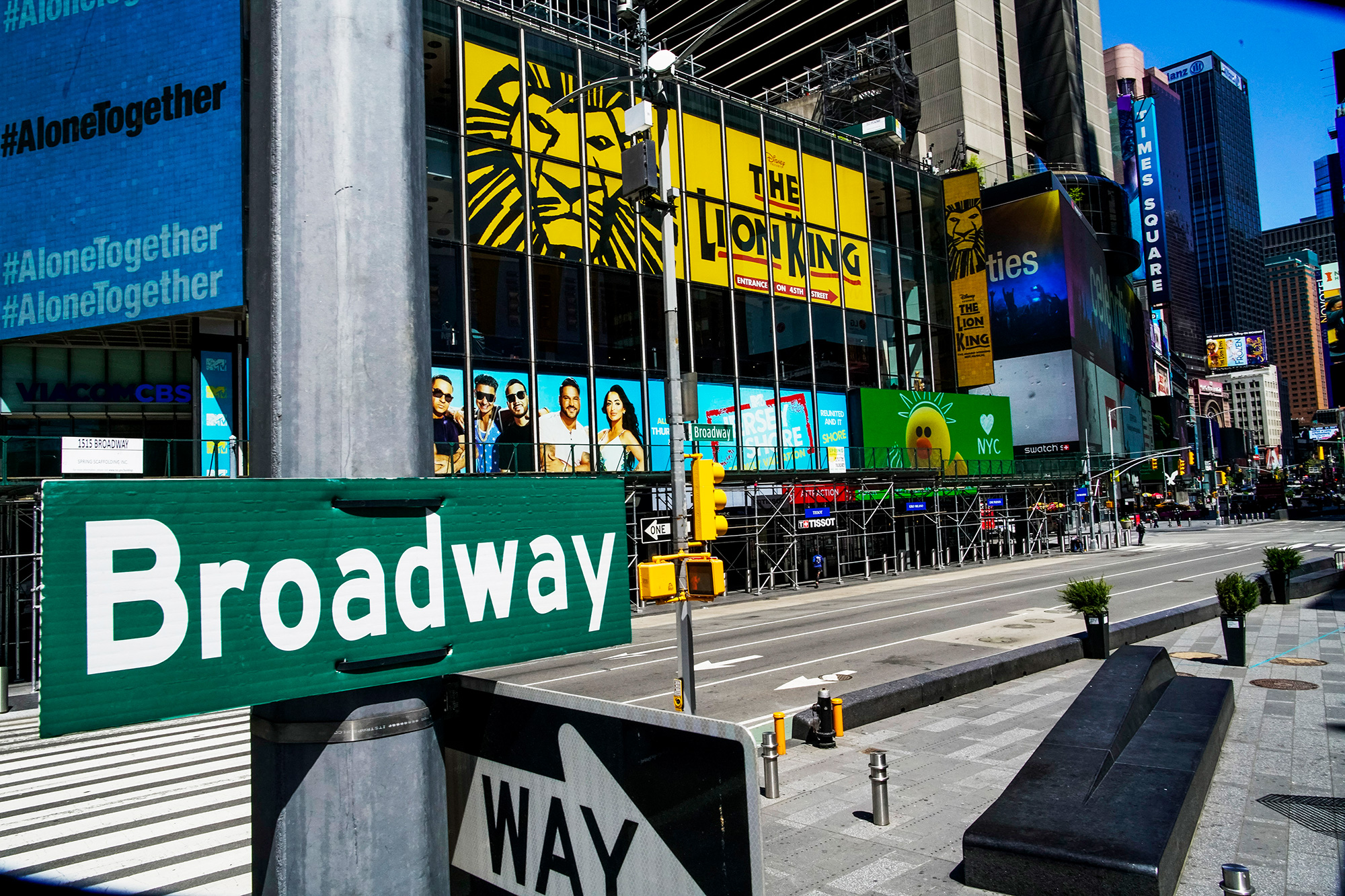Following an extension of the Broadway shutout, the theatre department ponders the industry’s future. Photo from ew.com.
Following the extension of Broadway’s shutdown until at least June 2021, the University of Rhode Island’s theatre department is reexamining the future of the theatre industry.
David T. Howard, chair of the theatre department, has been at URI for approximately 22 years. He understands the precautions taken by the Broadway League, but was concerned of the closure’s long-term impact.
“You need to be representing the world as it is. And unless the play is about social distancing, sometimes it might be a little difficult,” Howard said. “But what is even more difficult honestly is the fact that there are thousands and thousands of artists who are not working.”
Howard has thought about how the government could support some of the artists in the Broadway industry that are not receiving paychecks for their services. He explained that not only do actors need financial support, but also producers, artists and other businesses that are connected to theatre.
Howard has also seen some unions push to find outside funding for the Broadway production actors and crew members who cannot work, as the producers are not being paid as well. An organization known as the Actors Fund and social media campaigns are helping to promote and provide this kind of funding.
“There’s a big sort of push through social media and through other events to try to include the arts into some of those stimulus funds because those people can’t be paid and those Broadway producers don’t have a show,” Howard said.
Broadway’s shutdown and its impact on the job market has been a concern for theatre majors at URI. Yet the theatre department has planned alternatives to traditional shows in order to account for social distancing while still giving students theatrical experience. The scheduled one-act plays directed by the THE 322 class are being performed over radio, and a Halloween story presentation via video or podcast forms is also being considered, according to Howard.
This gives acting concentrates like junior Carleigh Boyle an opportunity to work on their craft along with acting classes, which have all been split into two groups so they can remain at least partly in-person and still follow COVID-19 guidelines.
In a positive light amid the shutdown, Boyle sees the closure as a time for Broadway to think about how shows can be more accessible to audiences in different ways, and an opportunity for diversity to be further integrated into the industry.
“I think that is going to be a positive impact about the closures, that we’re going to rethink how we make theater accessible for people who don’t usually get to see Broadway shows,” Boyle said.
Sophomore acting and design and theatre technology concentrate Riley Nedder sees both the upside and downside to the recent announcement.
“I think the only upside really to it is it allows for people to explore other venues and other modes of theater,” said Nedder. “I think the shutdown in and of itself is just scary more than anything else because Broadway is the biggest essential face of the theatre industry.”
Boyle has said that the Broadway shutdown has allowed herself and other acting concentrates to reflect about why they chose to study acting in the first place.
“We’re doing what we love and that is what matters in the long run,” said Boyle.

